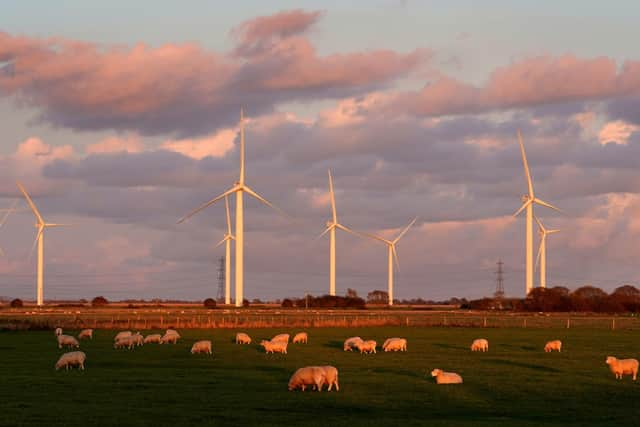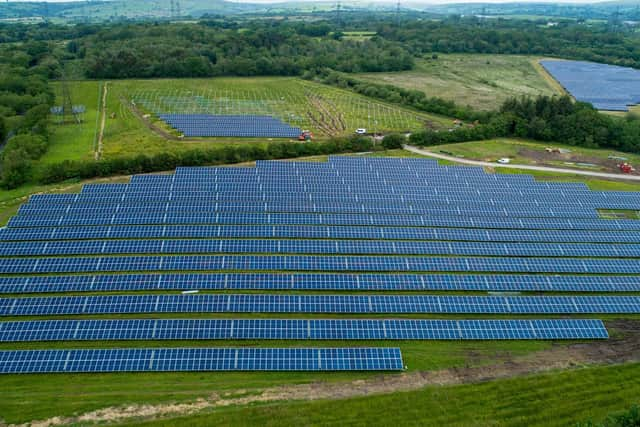Time to scrap ‘net zero’ as cost of living crisis grows ahead of Rishi Sunak’s Spring Statement – Yorkshire Post Letters
SINCE the hapless Theresa May committed us all to ‘net zero’ in 2019, every quango, local authority, institution and even corporate giants have been falling over themselves to outdo their respective virtue signalling diktats, increasing the cost of living and whilst hypocritically berating us all for living our lives.
There is now a genuine crisis in global agriculture and it is not climate related. Ironically the environmental policies of recent years are to blame. With energy, fertiliser and wheat prices at all time highs, many sectors have become unviable.
Advertisement
Hide AdAdvertisement
Hide AdFertiliser prices have quadrupled and supplies are tight because much of it comes from Ukraine and Russia. It had doubled before the Russian invasion due to the wholesale gas price.


We, of course, have plenty of gas under our feet but our government are scared of offending teenagers by fracking. During the Second World War, this country was at risk of a famine. Only by the concerted efforts of farmers was disaster averted. We have sleep walked into the same scenario. If the Government doesn’t wake up, scrap ‘net zero’ and maximise our farmland to produce more food, rationing is inevitable. Agriculture must not be treated like any other business or the country will starve.
From: Michael Carter, Exeter.
I MUST take exception to Bill Carmichael’s column “Time to drop Net Zero commitments” (The Yorkshire Post, March 11).
If we want to be grown-up, we need some numbers. Let’s start with the price of electricity production. In 2020, reduced demand meant that gas prices fell to a 20-year low but even then, renewable energy sources produced the cheapest electricity by far, with large-scale solar nearly half the price of gas.


Advertisement
Hide AdAdvertisement
Hide AdIn the four years leading to 2020, renewables dropped in price dramatically, almost halving for offshore wind. The cost advantage of renewables is massive now and is not going away.
We are deluding ourselves if we think that fracking or new sites in the North Sea will help with the current situation. Both will take a decade to make any difference and, because gas is priced on an international market, the impact will be tiny.
Alok Sharma says that the fastest way to reduce fuel prices is to increase our use of renewables and Kwasi Kwarteng agrees. We can also reduce demand by insulating our homes as well. Economically, these measures are an investment; fossil fuels go up in smoke.
Support The Yorkshire Post and become a subscriber today. Your subscription will help us to continue to bring quality news to the people of Yorkshire. In return, you’ll see fewer ads on site, get free access to our app, receive exclusive members-only offers and access to all premium content and columns. Click here to subscribe.
Comment Guidelines
National World encourages reader discussion on our stories. User feedback, insights and back-and-forth exchanges add a rich layer of context to reporting. Please review our Community Guidelines before commenting.